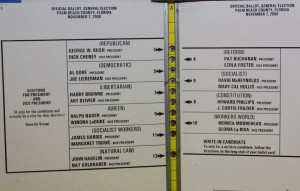Court Holds That Wikipedia Entries Are “Inherently Unreliable”
On the Legal Writing Prof blog, Jim Levy noted today (hat-tipping BNA Internet Law News) that a court expressly rejected an appellant’s attempt to rely on Wikipedia.
In State v. Flores, an unpublished decision by the Texas Court of Appeals for the 14th District dated October 23, 2008, the court refused the appellant’s request to take judicial notice of a Wikipedia entry describing the “John Reid interrogation technique.” The court reasoned in footnote 3 that Wikipedia entries are inherently unreliable because they can be written and edited anonymously by anyone. The court relied on a recent article from the Wall Street Journal entitled Wikipedians Leave Cyberspace, Meet in Egypt, noting that the egalitarian nature of Wikipedia is both “its greatest strength and its greatest weakness.”
The Flores decision is also available on Westlaw and Lexis at, respectively, 2008 WL 4683960 (Tex.App.-Hous (14th Dist.)) and 2008 Tex. App. LEXIS 8010.
Which reminded me of another recent Wikipedia-related entry on that blog, a note about Lee Peoples’ article, “The Citation of Wikipedia in American Judicial Opinions.”
I haven’t read Peoples’ article yet, but I should, because this issue of the reliability of Wikipedia and its citation by courts has been bubbling up lately. It think this Texas court was exactly right: “Wikipedia entries are inherently unreliable because they can be written and edited anonymously by anyone.” I will admit that I sometimes read a Wikipedia entry if I want background information about a topic. I do not think, though, that I would cite an entry as proof of anything in court. What do you think?


